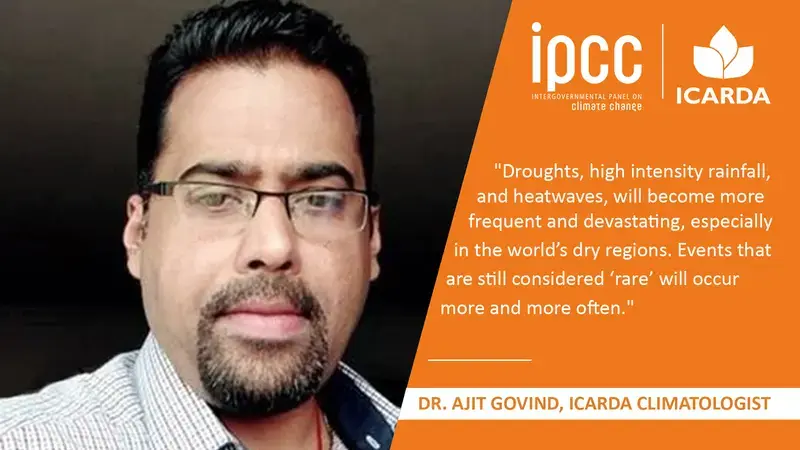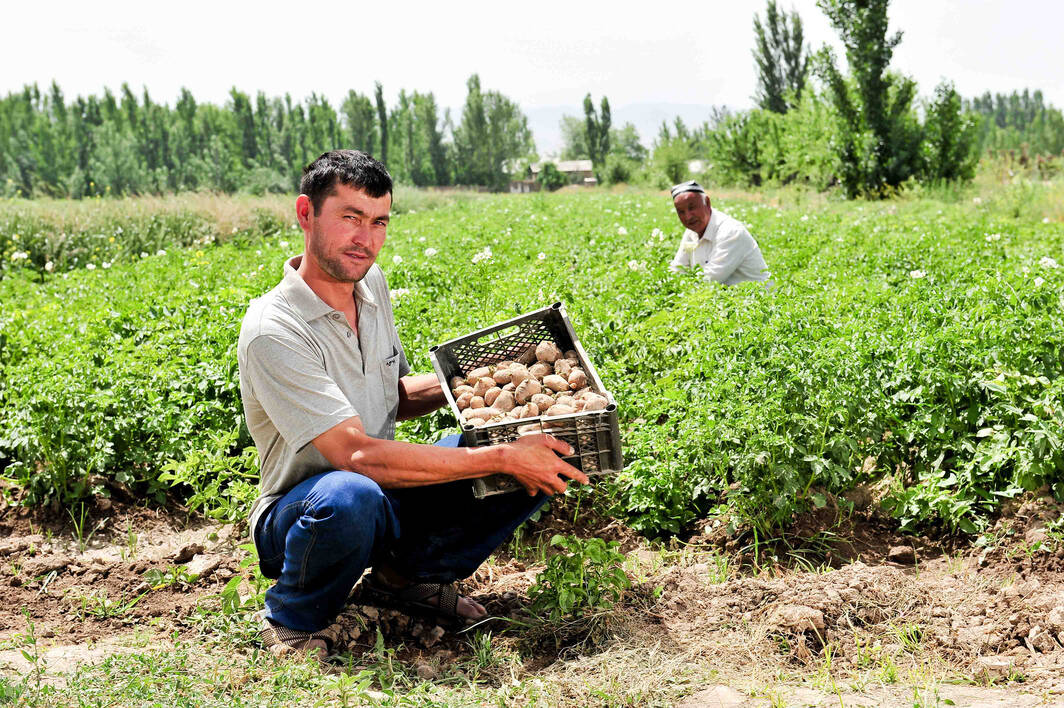Climatologist Dr. Ajit Govind discusses drylands and the IPCC Report

In a mini-Q&A series published this week and the next, we spoke to several ICARDA scientists to get a better sense of what the future of climate change might look like across the drylands, and to discover how ICARDA is supporting dryland smallholders to adapt.
Today’s Q&A features Dr. Ajit Govind, a climatologist at ICARDA whose research focuses on the influence of climate, topography, vegetation, and human impacts on terrestrial biogeochemical processes.
---------
Ajit Govind: The report does not present new information in terms of climate knowledge per se, but what I found particularly striking is the use of much stronger, more confident language throughout this assessment.
It is the first time in the history of IPCC assessments that scientists say that the climate crisis is ‘unequivocally’ caused by human activities, which makes it a powerful tool to influence policymakers into making timely decisions.
AG: This assessment makes clear that extreme climatic events such as droughts, high intensity rainfall, and heatwaves will become more frequent and devastating, especially in the world’s dry regions. Events that are still considered ‘rare’ will occur more and more often.
The Northwestern part of the Middle East and North Africa region, encompassing Morocco and Algeria, will be particularly affected by droughts and heatwaves in the future.
AG: The Mediterranean region is one of the most vulnerable places on the planet when it comes to drought. If a drought lingers for too long, the crops and the entire agricultural system can collapse. Mediterranean countries are more vulnerable than others because winter crops are rainfed there, and as such, rely on precipitation for growth.
This means that if a drought sets in over the winter, entire harvests could be wiped out, except if supplementary irrigation systems are established.

AG: ICARDA’s focus is on climate adaptation, and we have many tools and techniques that we use simultaneously to combat the impacts of climate change on food security, and on farmers’ livelihoods.
We enhance water productivity, which means growing more crops with the same amount of water, or growing the same level of crops with less water. We do this by training farmers on more efficient irrigation techniques, and by advising them on the optimal time to irrigate to obtain more crop per unit of water applied.
ICARDA also works on supplemental irrigation in rainfed systems. In Morocco, a country that has experienced many droughts in the past decade, ICARDA is working on establishing supplemental irrigation systems to ensure that crop yields do not drop.
Another important work area for ICARDA is land degradation. Under climate change, soil evaporation levels are rising, which means that the probability for soil to break down due to salinity or depleted organic matter is getting higher. Encouraging nature-based solutions are a critical aspect of climate adaptation, especially crop diversification, which ICARDA is working on.
Another crucial area of ICARDA’s work is developing climate-smart crop varieties that are resistant to drought, heat, salinity, and other biotic stresses such as pests and diseases. Finally, ICARDA leverages digital technologies to provide context-specific advice to farmers as a climate adaptation measure.
AG: Undoubtedly, one of the major adaptation strategies for dryland farmers resides in crop diversification. When multiple crops are cultivated on a single piece of land, they recycle water and nutrients between them, which helps retain those essential inputs, and reduces land degradation. Having multiple crops also reduces food security and livelihood risks for farmers, as they guarantee their access to market.
